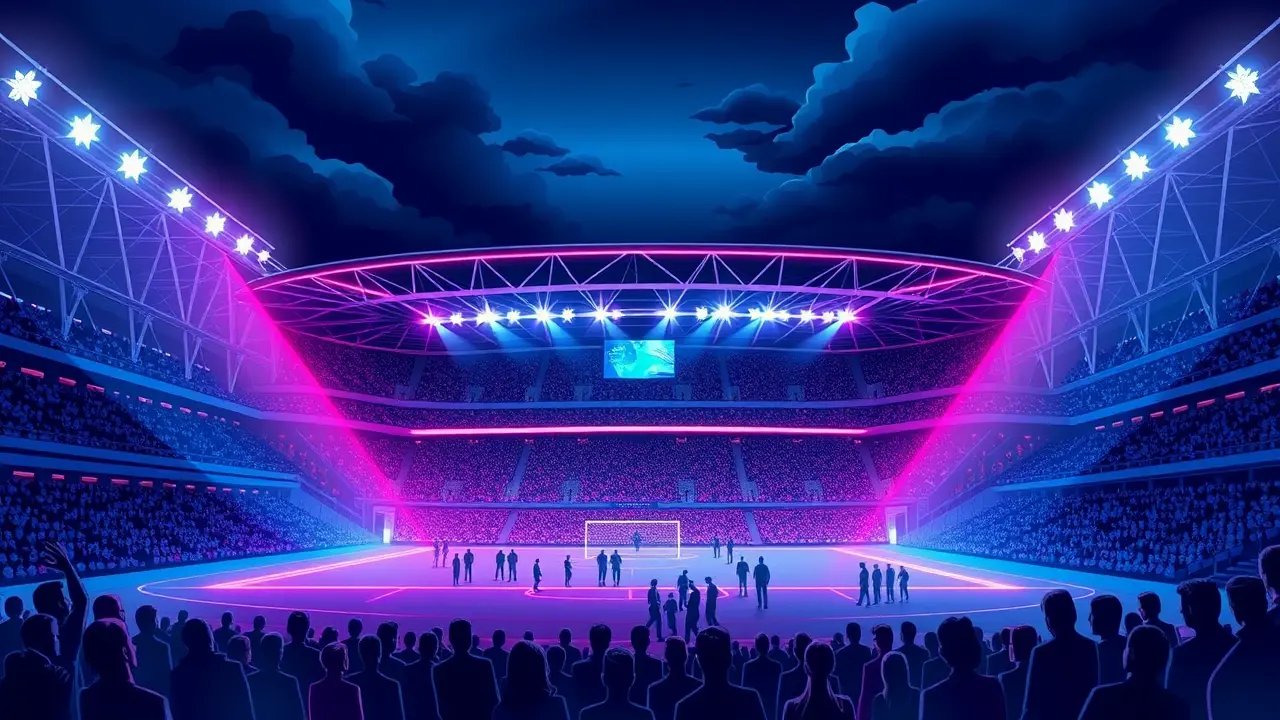Manchester United to Fund $2 Billion Stadium, Seeks Infrastructure Support.
In a seismic announcement that has sent shockwaves through English football, Manchester United has declared its intention to privately finance a monumental new £2 billion stadium, a 100,000-seat colossus intended to reclaim its throne as the home of footballing cathedrals, yet the club has simultaneously launched a clarion call to the UK government, not for a handout on the stadium itself, but for a foundational partnership in overhauling the surrounding infrastructure to prevent the new Theatre of Dreams from becoming an isolated island. Speaking on the 'We Built This City' podcast, chief operating officer Collett Roch was unequivocal about the club's financial commitment, stating, 'Absolutely not,' when questioned on the use of public funds for the stadium's construction, framing it as a point of pride and responsibility akin to a club legend putting the team on his back in a cup final.'We understand that the stadium is our responsibility. We want to provide an excellent stadium for our fans.We will pay these £2 billion—at least that's the latest estimate—to make it happen,' she affirmed, a statement that echoes the financial muscle once displayed in the transfer market for a Cantona or a Rooney. However, Roch immediately pivoted to the strategic masterstroke, the crucial assist the club requires to make this goal a reality, drawing a powerful analogy to the beautiful game itself: a world-class striker is rendered ineffective without a cohesive midfield and solid defense.'But there is no point in building the biggest or best stadium in the UK if it ends up on an island that you can't get to because of a lack of transport links, or if people can't visit it on non-matchdays, or if local businesses can't also operate there,' she argued, highlighting a vision that transcends the 90 minutes on the pitch. This is where the club's real play begins, a sophisticated piece of off-the-ball movement in the political and economic arena.Their formal request is for the government to back the essential regeneration of the area—the transport networks, the public spaces, the commercial ecosystems—transforming the project from a mere sporting venue into an engine for regional economic growth, a legacy project that would dwarf even the most successful season. Roch framed this not as a plea but as a partnership for a shared victory, declaring, 'This is a fantastic opportunity not just for Manchester United, but for the entire region.This is something much bigger than just a great stadium for our team, our club, our fans. That is why the city authorities are so keen to work with us.' This ambitious plan immediately invites comparisons to other landmark projects, such as the regeneration around the London Olympic Park or Tottenham Hotspur's own stadium-led development, yet the scale here is arguably grander, a Champions League final ambition compared to a domestic cup run. The financial calculus is staggering; a £2 billion private investment is a figure that would make even the free-spending clubs of the Saudi Pro League pause, placing United's ownership in a position where they must demonstrate a commitment to the club's long-term fabric that goes beyond the Glazer-era leveraged buyouts, a potential legacy-defining move that could reshape their standing with a global fanbase often critical of their motives.The infrastructure ask, however, plunges the project into the turbulent waters of UK politics and public funding, where every pound spent in Manchester will be scrutinized by constituencies from Cornwall to Newcastle, and where the current government's 'Levelling Up' agenda will be put to the ultimate test. Can a project so intrinsically linked to a global, commercially behemoth of a football club justify significant state investment in its periphery? Detractors will argue it's a subsidy for a billionaire-owned business, while proponents will point to the thousands of jobs, the increased tourism, and the catalytic effect on the wider North-West economy, a debate as passionate as any over a controversial VAR decision.Furthermore, the success of such an integrated development hinges on a symphony of coordination between private enterprise and multiple layers of government—local councils, Transport for Greater Manchester, and national departments—a bureaucratic challenge that has derailed many a promising project, requiring the tactical discipline of a Sir Alex Ferguson to navigate. For the fans, the dream of a state-of-the-art, larger home is palpable, a chance to modernize beyond the beloved but aging Old Trafford, yet it is tempered by the practical anxieties over transport chaos and potential ticket price inflation to service the colossal debt.The club's strategy, as outlined by Roch, is a high-stakes gamble: build it ourselves, but you must build the roads and rails to get there. It’s a bold 4-3-3 attacking formation, relying on a perfect through-ball from the government to score an open goal for the future of Manchester. The final whistle on this project is years away, but the first tactical move has been played, and the entire sporting world is watching to see if this ambitious play results in a triumphant victory for club and community or remains a glorious, unfulfilled dream.
It’s quiet here...Start the conversation by leaving the first comment.
